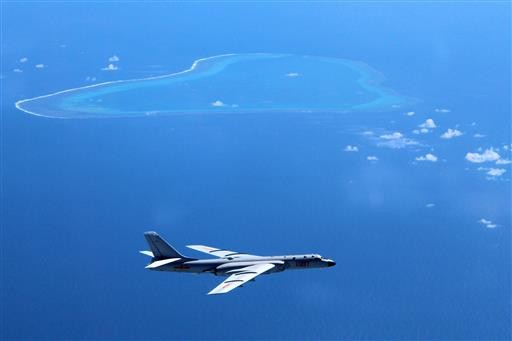Popular Reads
Top Results
Can't find what you're looking for?
View all search resultsPopular Reads
Top Results
Can't find what you're looking for?
View all search resultsSeeking a breakthrough in maritime diplomacy
If ASEAN is to reassert itself in managing the SCS, it should reverse this position. ASEAN should liberate itself from the Chinese stance and leave negotiations on the Code of Conduct. It should restore its ASEAN First principle in dealing with dialogue partners like China.
Change text size
Gift Premium Articles
to Anyone
M
aritime diplomacy is the management of international relations at sea and the use of ocean-related resources to manage such relations. Maritime diplomacy should be applied in the South China Sea (SCS) to sort out issues of assertive behavior, freedom of navigation and overflight, support for the rules-based international order and the peaceful resolution of disputes.
As China has been acting more forcefully and vigorously in the region, asserting that the SCS is part of its non-negotiable “core interests” and that it will use force to defend it, ASEAN’s attempts to engage mainland China through the 2002 Declaration on the Conduct of Parties in the South China Sea has put its own cohesion in complete disarray.
The ASEAN First principle in dealing with non-ASEAN parties, in this case the 10 + 1 formula, is totally sidelined. As China insists on bilateral talks on the SCS with ASEAN member countries who share a claim to the area, China has grossly incapacitated the principle of 10 ASEAN member states plus China in managing the SCS.
Negotiations over a Code of Conduct to preserve stability in the SCS are complicated by the fact that not every ASEAN member state is involved in the SCS dispute. More importantly, for China, such a code would limit its activities in the SCS and hamper its strategy to increase its control of the region through maritime patrols; hence its tactics of delaying the formulation of a Code of Conduct.
If ASEAN is to reassert itself in managing the SCS, it should reverse this position. ASEAN should liberate itself from the Chinese stance and leave negotiations on the Code of Conduct. It should restore its ASEAN First principle in dealing with dialogue partners like China.
Ideally, among others, the bloc should reinvigorate ASEAN and the Southeast Asia Nuclear Weapons Free Zone, which came into force in 1997, and envelop the SCS into ASEAN’s Zone of Peace, Freedom and Neutrality and its prime management instrument, the 1976 Treaty of Amity and Cooperation.
There are, however, two serious impediments. First is the Chinese “One Belt One Road” (OBOR) initiative linking China by land and sea to Asia and parts of Europe. Mainland Southeast Asia is defined as a key hub for China, especially China’s Yunnan province, to develop an international transportation network to both South and Southeast Asia through the new Langcang-Mekong Cooperation Framework.


















